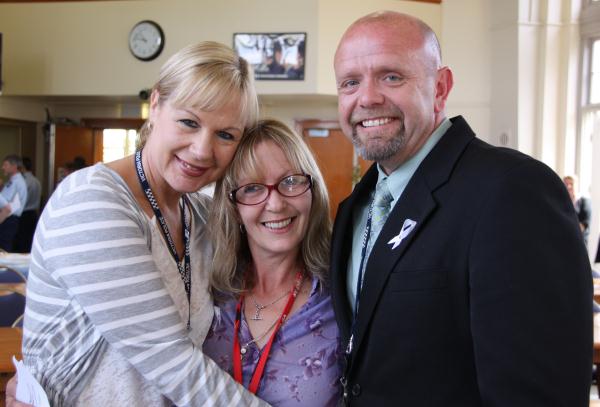
By KATH GANNAWAY
A SECTION of the Corrections Act which stops victims from knowing where their parolee abuser is living, is being challenged by Yarra Valley abuse survivor Jeannie Blackburn.
And, Victoria Police is also supporting changes to the law.
Ms Blackburn spoke out early last week for the right to know the area in which parolee Paul McCuskey now lives after she was unable to get the information from the Adult Parole Board or the Victims Registrar.
APB general manager David Provan told the Mail that McCuskey was subject to a strict supervision regime and was being closely monitored.
He said it is the role of the Victims Registrar to provide information and not the Parole Board, but added both are bound by the Corrections Act 1986 that allow the release of certain information but not all confidential information.
Victoria Police Chief Commissioner Ken Lay intervened after learning of Ms Blackburn’s situation and by Thursday she said police had made the information available to her.
The exposure of the law which is seen as another example of victims rights coming second to those of offenders, has highlighted a situation Ms Blackburn said is faced by women throughout Victoria.
McCuskey, Ms Blackburn’s partner of about three years, was convicted in 2010 of a series of unprovoked and violent attacks on her.
He was sentenced to five years and six months in jail and released on parole in April, three years into the sentence.
The brutality of the attacks which inflicted terrible injuries on Ms Blackburn, including the permanent loss of sight in one eye and a miscarriage, shocked Mail readers when she told her story following his conviction.
For three years she had the security of knowing where her attacker was – in jail.
Ms Blackburn said she needed to know where he was living so she could avoid that area, and again have some sense of security.
“I was concerned about where I could go and couldn’t go. I didn’t want that confrontation and believe I, and others in my situation, have a right to that peace of mind,” she said.
Ms Blackburn said the situation as it still stands under law is a blatant example of offenders having more rights than their victims, with the APB bound by law not to divulge the information.
McCuskey, on the other hand, has been advised of the area where she lives as there is an order in place which makes it illegal for him to come within a certain distance of Ms Blackburn.
A Victoria Police spokeswoman has confirmed that the local Family Violence Team visited Ms Blackburn on Thursday, but said the details would remain confidential to respect her privacy.
Ms Blackburn told the Mail, however, that Mr Lay had intervened and said she was grateful to now know the general area in which McCuskey was living, adding that she would respect his privacy.
The spokeswoman said Victoria Police was looking at options in relation to the legislation.
“Family violence has a devastating impact, and our number one priority is the welfare of the victim,” she said.
Her comments follow Chief Commissioner Lay’s comments on Melbourne radio earlier in the week pledging his support.
“When you read about the injuries Jeannie suffered, you’ve got to have some level of sympathy for that. I think people like that have the right to get on with their lives and feel safe,” he said.
Ms Blackburn said she would also continue to lobby the State Government to change the Corrections Act to automatically give victims the same rights as offenders.






